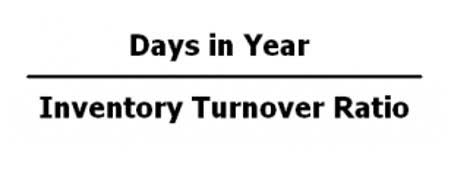Intro to Revenue Recognition: GAAP Principles

A seller ships goods to a customer on credit, and bills the customer $2,000 for the goods. The seller has realized the entire $2,000 as soon as the shipment has been completed, since there are no additional earning activities to complete. The delayed payment is a financing issue that is unrelated to the realization of revenues. On May 28, 2014, the Financial Accounting Standards Board (FASB) and International Accounting Standards Board (IASB) jointly issued Accounting Standards Codification (ASC) 606. This highlights how revenue from contracts with customers is treated, providing a uniform framework for recognizing revenue from this source. Regulators know how tempting it is for companies to push the limits on what qualifies as revenue, especially when not all revenue is collected when the work is complete.
Great! The Financial Professional Will Get Back To You Soon.
When executives are confident in their organization’s revenue recognition processes and reporting, they can make informed decisions in other business areas. Second, revenue recognition ensures transparency and accountability in financial reporting. In other words, the standardized ASC 606 revenue recognition steps produce reports that make it easier for investors, analysts, and regulators to see what’s really going on at a company.

Ask Any Financial Question
For instance, if you’re running a web design agency, the performance obligations could include design, development, hosting services, and SEO optimization. So, according to the recognition principle, the revenue of trucks is to be recognized when risk and rewards related to the truck are transferred, CARES Act or the truck is delivered, whichever is earlier. In the case of continuous services, it is to be recognized on a percentage completion basis.
Matching Principle
Similarly, an expense should be recognized when goods are bought or services are received, whether cash is paid or not. The realization principle of accounting is one of the pillars of modern accounting that provides a clear answer to this question. At the same time, the realization principle also gave birth to the accrual system of accounting.
- Lastly, insufficient documentation and communication can lead to disputes and audit failures.
- If you report sales bookings as revenue, you risk overstating your revenue for that accounting period and basing business decisions on an inaccurate cash flow assessment.
- Performed correctly, revenue recognition follows several generally accepted accounting principles (GAAP) that we will discuss in more detail below.
- Companies should use these five criteria to guide their revenue recognition practices so their financial statements accurately reflect their performance.
- It is a fundamental concept in accounting that determines when a company can legitimately claim that it has earned revenue and can include it in its financial statements.
- Forecasting future revenue is challenging because you need to rely on historical data and make assumptions about the future.
- This exception primarily deals with long-term contracts such as constructions (buildings, stadiums, bridges, highways, etc.), development of aircraft, weapons, and spaceflight systems.
The percentage of completion is typically calculated based on the costs incurred to date compared to the total estimated costs. In a sales transaction, the revenue is referred to as earned when the seller satisfies its performance obligation by delivering the related realization of revenue definition accounting goods or services to the buyer, along with all benefits and rights according to the terms of sale. At this point, the entity is generally entitled to receive the revenue because the value of goods and services sold to the buyer can be objectively measured and the earning process is completed. Revenue realization is the process by which a company recognizes and records revenue from the sale of goods or services. It is a fundamental concept in accounting that determines when a company can legitimately claim that it has earned revenue and can include it in its financial statements.
- In the case of continuous services, it is to be recognized on a percentage completion basis.
- It is important to note time of sale recognition is not commonly applicable in today’s world of accounting in accordance with US GAAP.
- Revenue realization is the process by which a company recognizes and records revenue from the sale of goods or services.
- 11 Financial’s website is limited to the dissemination of general information pertaining to its advisory services, together with access to additional investment-related information, publications, and links.
- This typically means that the good or service has been delivered to the customer and they now have control over it.
- It is done by debiting unearned revenue (or prepaid revenue) and crediting revenue.
Event Recognition
In this second example, according to the realization principle of accounting, sales are considered when the goods are transferred from Mr. A to Mr. B. A fundamental point to remember is that revenue is earned only when goods are transferred or when services are rendered. Contractors PLC entered into a contract in June 2012 for the construction of a bridge for $10 million. The total costs to complete the project are estimated to be $6 million of which $3 million has been incurred up to 31st December 2012. Contractors PLC received $2 million mobilization advance at the commencement of the project. On the other hand when we realize an event we convert the event into actual cash.
- It encourages transparency in financial reporting, helping investors, analysts, and stakeholders evaluate and compare financial statements across companies and jurisdictions.
- For instance, if you’re running a web design agency, the performance obligations could include design, development, hosting services, and SEO optimization.
- Despite all the potential complexities, businesses must recognize revenue according to established industry standards to stay legally compliant and report their financials accurately and transparently.
- The realization principle is a fundamental accounting concept that dictates when revenue should be recognized in the financial statements.
- Our work has been directly cited by organizations including Entrepreneur, Business Insider, Investopedia, Forbes, CNBC, and many others.

Performed correctly, revenue recognition follows several generally accepted accounting principles (GAAP) that we will discuss in more detail below. Keep reading to learn about the implications of revenue recognition, how to handle common pitfalls when recording revenue, and which GAAP guidelines pertain to revenue recognition. Realization concept in accounting, also known as revenue recognition principle, refers to the application of accruals concept towards the recognition of revenue (income). Under this principle, revenue is recognized by the seller when it is earned irrespective of whether cash from the transaction has been received or not.

For example, attorneys charge their clients in billable hours and present the invoice after work is completed. Realization concept requires that revenue shall not be recognized on the basis of cash receipts but should rather be recognized on accruals basis. Fourth, the transaction price shall be allocated to each corresponded performance obligation. The allocation is done by based on the stand alone selling price of each performance obligation. Accurate revenue realization is more challenging when you have to recognize the revenue after you’ve received and have possibly already been using the cash.
- You have to know which revenue has been earned and can thus be reported on the income statement for a specific accounting period.
- Contracts that span over a long period can be difficult to manage and calculate revenue realization accurately.
- The best way to understand the realization principle is through the following examples.
- The old guidance was industry-specific, which created a system of fragmented policies.
- For example, if a company recognizes revenue prematurely, its profits will likely be overstated, whereas if it delays recognition, they will be understated.
Realization Principle of Accounting FAQs
In accounting, the revenue recognition principle states that revenues are earned and recognized when they are realized or realizable, no matter when cash is received. This means revenue is not recognized upfront at the time of the sale for the entire subscription fee but rather over the course of the subscription period. In other words, according to the realization principle, revenue can only be recognized once earned.

















